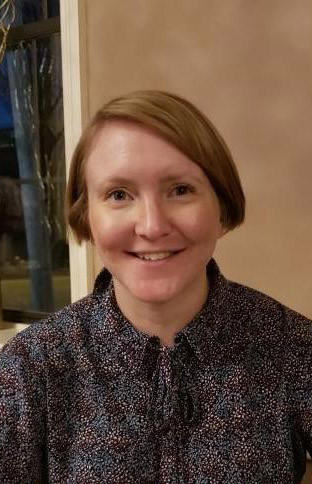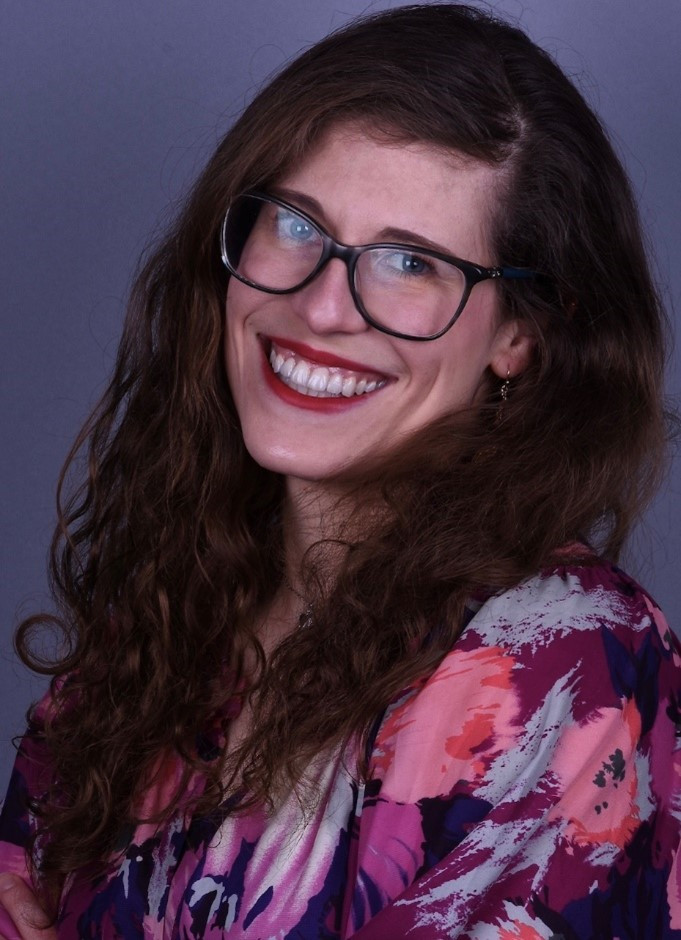History
Ekaterina Babintseva

Prof. Ekaterina Babintseva is a historian of science and technology working at the intersections of human sciences and computing. She received her PhD in 2020 from the Department of History and Sociology of Science at the University of Pennsylvania. Prior to joining Purdue, she was a Hixon-Riggs Postdoctoral Fellow in Science and Technology Studies at Harvey Mudd College.
Her current book project examines mid-century artificial intelligence by attending to the history of Soviet and American pedagogical computing. Entitled " Making Up Minds: Learning with Machines in the Cold War United States and the Soviet Union," the manuscript traces how two Cold War superpowers circulated knowledge about human cognition and computers while building special teaching computers that would replace human instructors. To build such computers, Soviet and American researchers had to translate the mechanisms of human cognition into the language accessible to computers. In this process, they made important contributions to mid-century approaches to artificial intelligence. The book shows that in both countries, ideal minds – human or artificial – were supposed to productively serve the state.
Her article " Rules of Creative Thinking: Algorithms, Heuristics, and Soviet Cybernetics Psychology" was published in BJHS Themes issue " Histories of Artificial Intelligence: A Genealogy of Power." Dr. Babintseva has also contributed to edited collections focusing on the reorientation of the history of computing and social science, with works such as " Engineering the Lay Mind: Lev Landa’s Algo-Heuristic Theory and Artificial Intelligence" in Abstractions and Embodiments: New Histories of Computing and Society (Johns Hopkins University Press, 2022) and "' Overtake and Surpass': Soviet Algorithmic Thinking as a Reinvention of Western Theories during the Cold War" in Cold War Social Science: Transnational Entanglements (Palgrave MacMillan, 2021).
Babintseva’s work has been supported by institutions like the Ann Johnson Institute for the History of Science, Technology, and Society, the Linda Hall Library, the ACM History Committee, the Charles Babbage Institute, and the Consortium for the History of Science, Technology, and Medicine.
Kathryn Maxson Jones

Kathryn Maxson Jones is an Assistant Professor in the Department of History. Her research and teaching span the histories of science, technology, and medicine and related policy issues.
Professor Maxson Jones is currently working on a book, Sea Change: The Squid Giant Axon and the Transformation of Neurobiology, based on her award-winning doctoral dissertation. This book examines the history of an enormous nerve fiber – the “squid giant axon” – as an experimental model in 20th- and 21st-century neurobiology. She has also written a book chapter and an article on this topic.
In addition to the history of neuroscience, Professor Maxson Jones’ research explores the histories of regenerative biology, experimental and model organisms in life science, artificial intelligence, genomics, and molecular biology. With a collaborator at the Marine Biological Laboratory (MBL) in Woods Hole, MA, she is working on a short volume exploring the question, " What is neuron regeneration?" Supported by the James S. McDonnell Initiative, she has also published works on the history of the lamprey in neurobiology research.
Her historical work also includes the rise of data-sharing policies in molecular biology and genomics, inspired by research conducted at the Center for Public Genomics at Duke University.
Professor Maxson Jones maintains an active research portfolio in medical humanities, examining challenges and concerns related to sharing human data within the U.S. BRAIN Initiative. This interest originated from her work at the Center for Medical Ethics and Health Policy at Baylor College of Medicine, where she was involved in the project BRAINshare: Sharing Data in BRAIN Initiative Studies.
Her research has been featured in journals and books such as Neuron, Science, Frontiers in Cell and Developmental Biology, Annual Review of Genomics and Human Genetics, Journal of the History of Biology, Berichte zur Wissenschaftsgeschichte, Why Study Biology by the Sea? (The University of Chicago Press, 2020), and GigaScience.
Zachary Loeb

Zachary Loeb is interested in the end of the world, particularly how humanity’s relationship with technology could lead to catastrophe. He is a historian of technology, disasters, and technological disasters, focusing on the risks created by technological developments, especially computing. He earned his PhD in 2023 from the History and Sociology of Science department at the University of Pennsylvania, supported by institutions like the Charles Babbage Institute and the Andrea Mitchell Center for the Study of Democracy.
His current book project, tentatively titled Almost Midnight: Y2K and the Race to Save the World as We Have Come to Know It, explores the Y2K crisis. This project traces the actions of various groups in response to Y2K, contrasting the apocalyptic media portrayal with the more measured analysis of computing professionals, revealing societal dependence on computer systems by the end of the 20th century.
Beyond Y2K, Loeb’s research interests include the history of cybersecurity, social disruptions caused by computer failures, and the lives and ideas of past critics of technology, such as Lewis Mumford and Joseph Weizenbaum. His work has appeared in The Washington Post, Real Life Magazine, Boundary 2, edited volumes, and CNN’s documentary The Y2K Story.
Aaron Mendon-Plasek

Aaron Mendon-Plasek is an Assistant Professor of History at Purdue University and a historian of science and technology. His work examines how schemes of quantification, including their material, cultural, technical, and institutional instantiations, have been used to imagine, enact, and justify social order. Building on his dissertation, his first book project provides a revisionist history of machine learning from WWII to the present that explores how and why it became thinkable and subsequently "reasonable" for learning machines and machine learning strategies, rooted in conceptions of creativity and human judgment, to adjudicate social questions in the 21st century. His research has been supported by a variety of fellowships and grants, including from the National Science Foundation, Columbia University, and the Charles Babbage Institute.
Mendon-Plasek's publications on the history of machine learning and artificial intelligence include articles in BJHS Themes and IEEE Annals of the History of Computing, and a chapter in The Cultural Life of Machine Learning. He holds a PhD, MPhil, and MA in history from Columbia University, an MA in humanities and social thought from NYU, an MFA in writing from the School of the Art Institute of Chicago, and a BS in physics and astronomy and a BA in writing from Drake University. Prior to coming to Purdue, he was an associate research scholar in the Information Society Project at Yale University, where he remains an affiliated fellow.